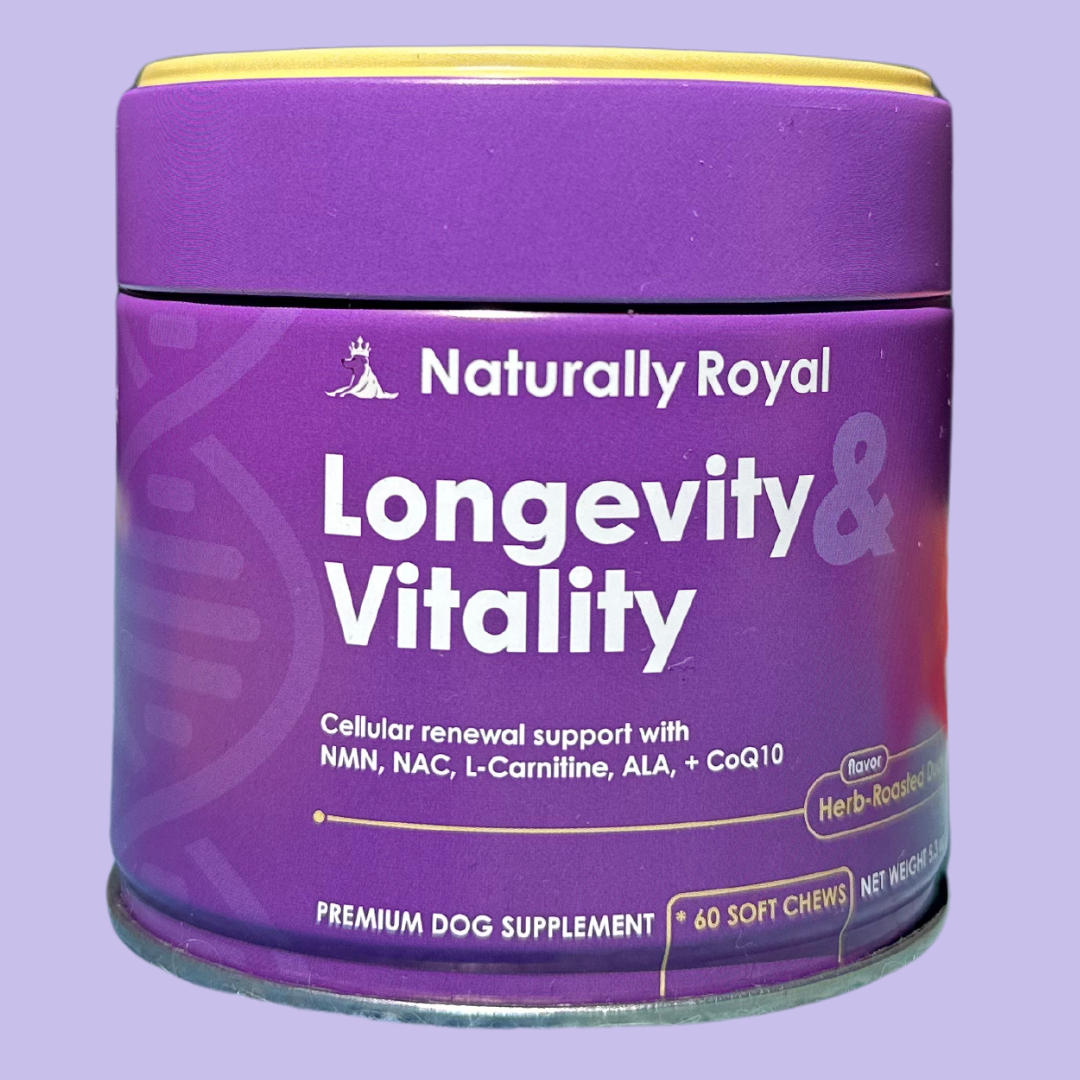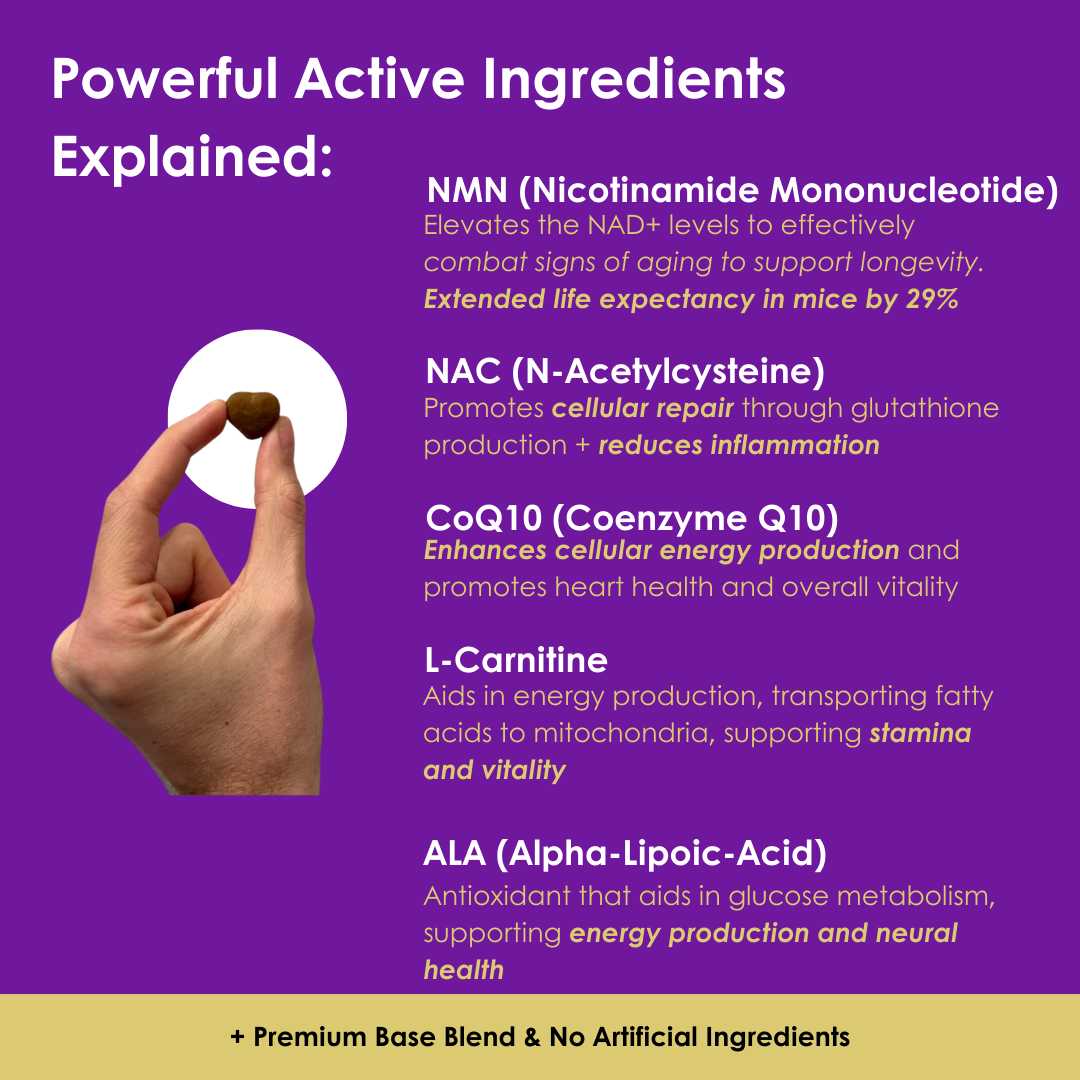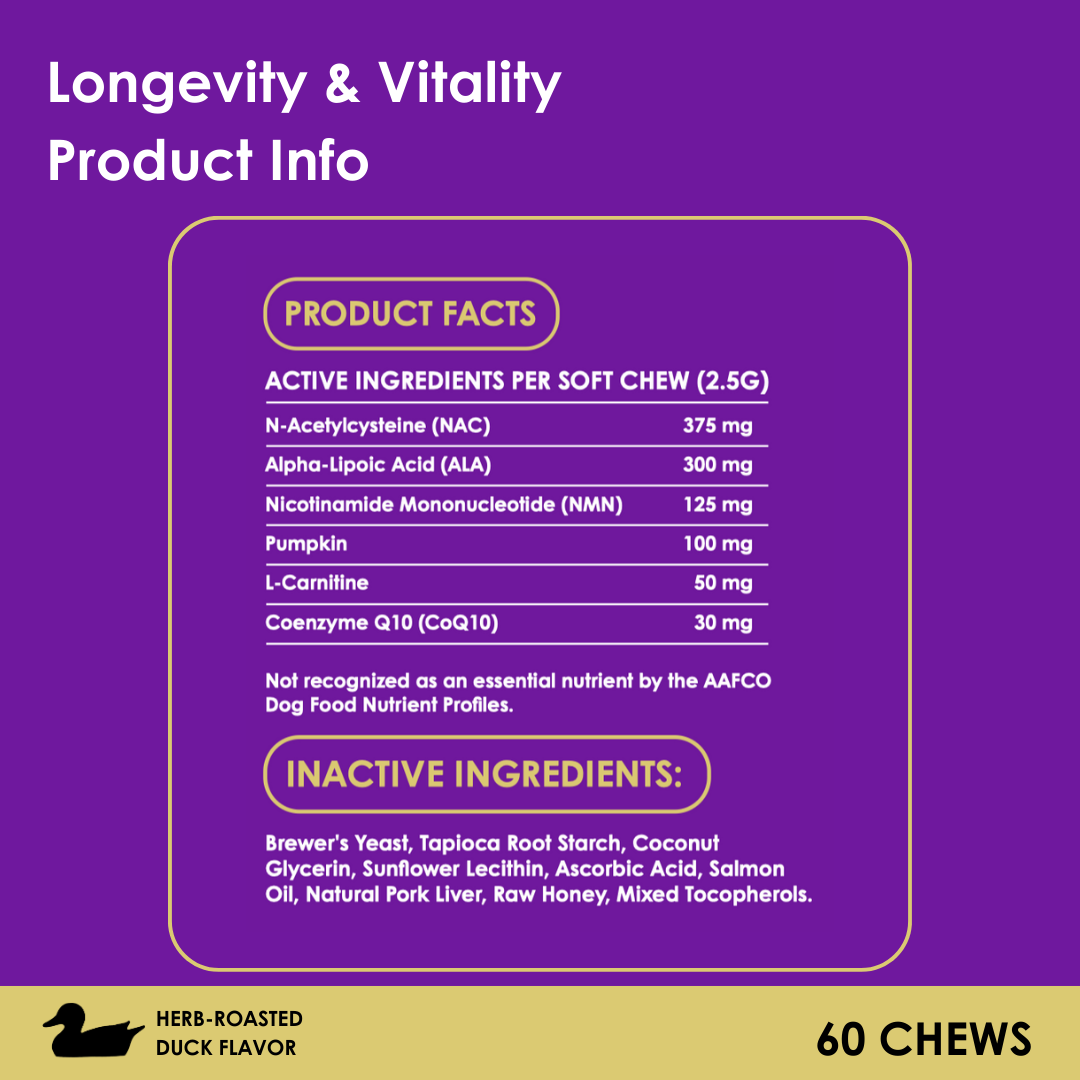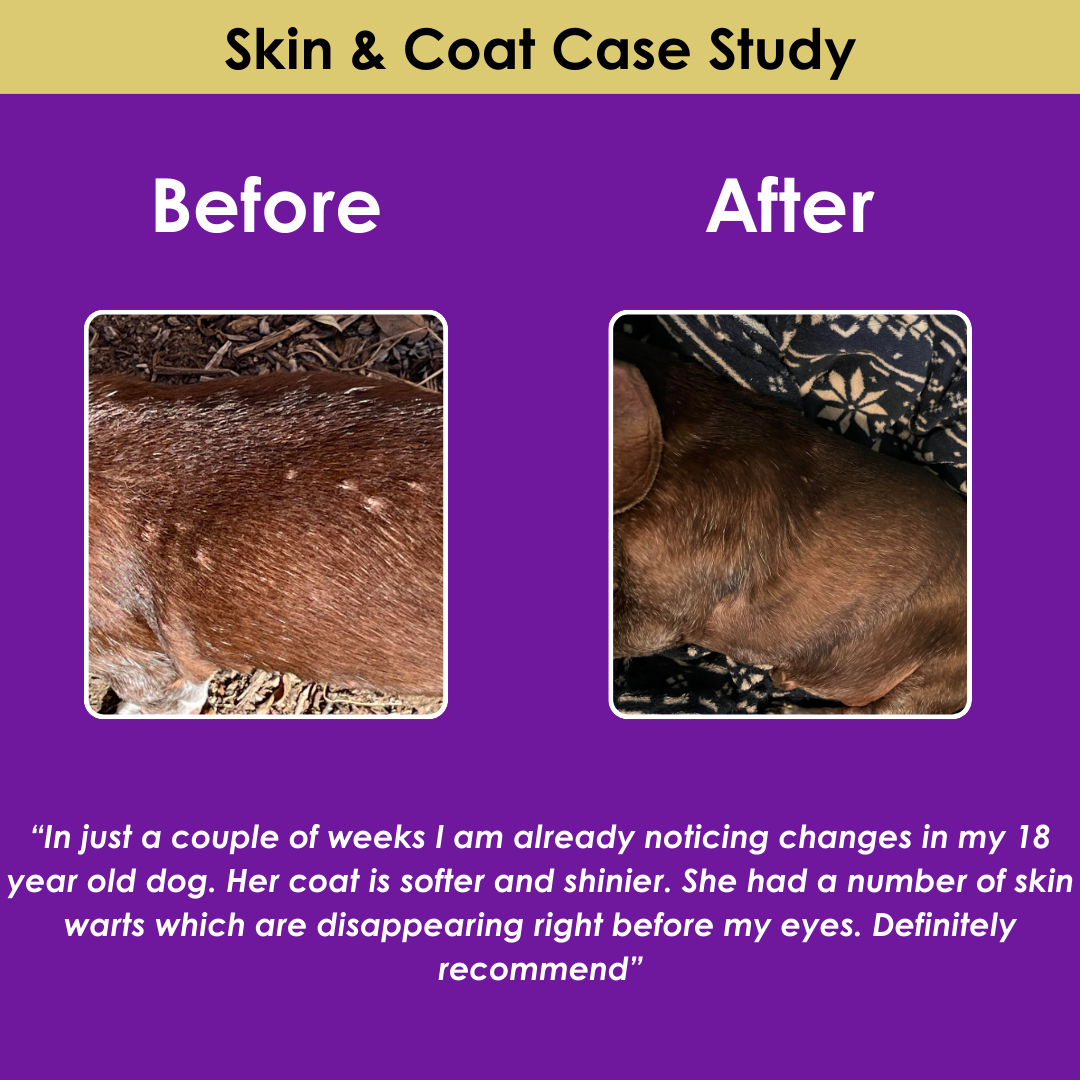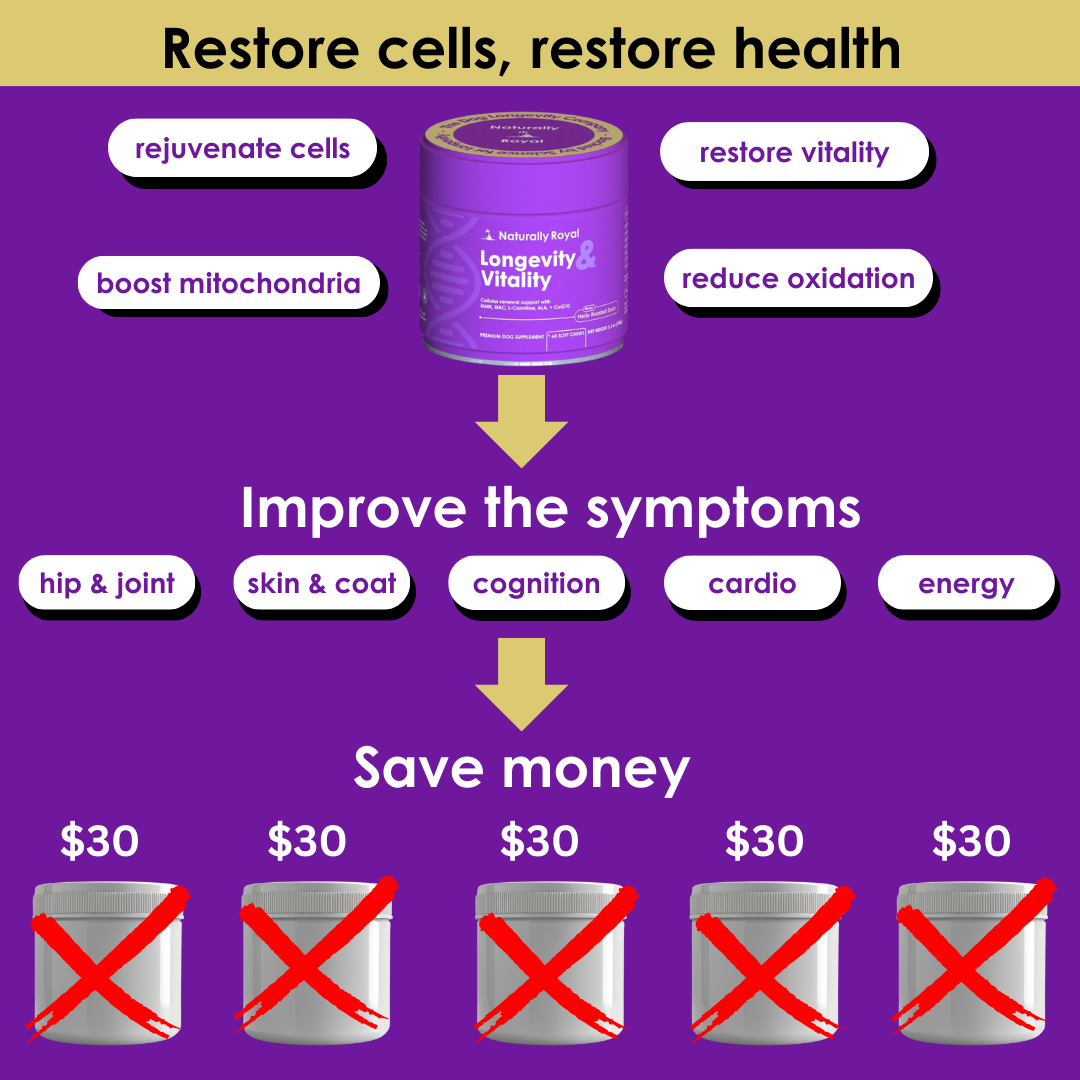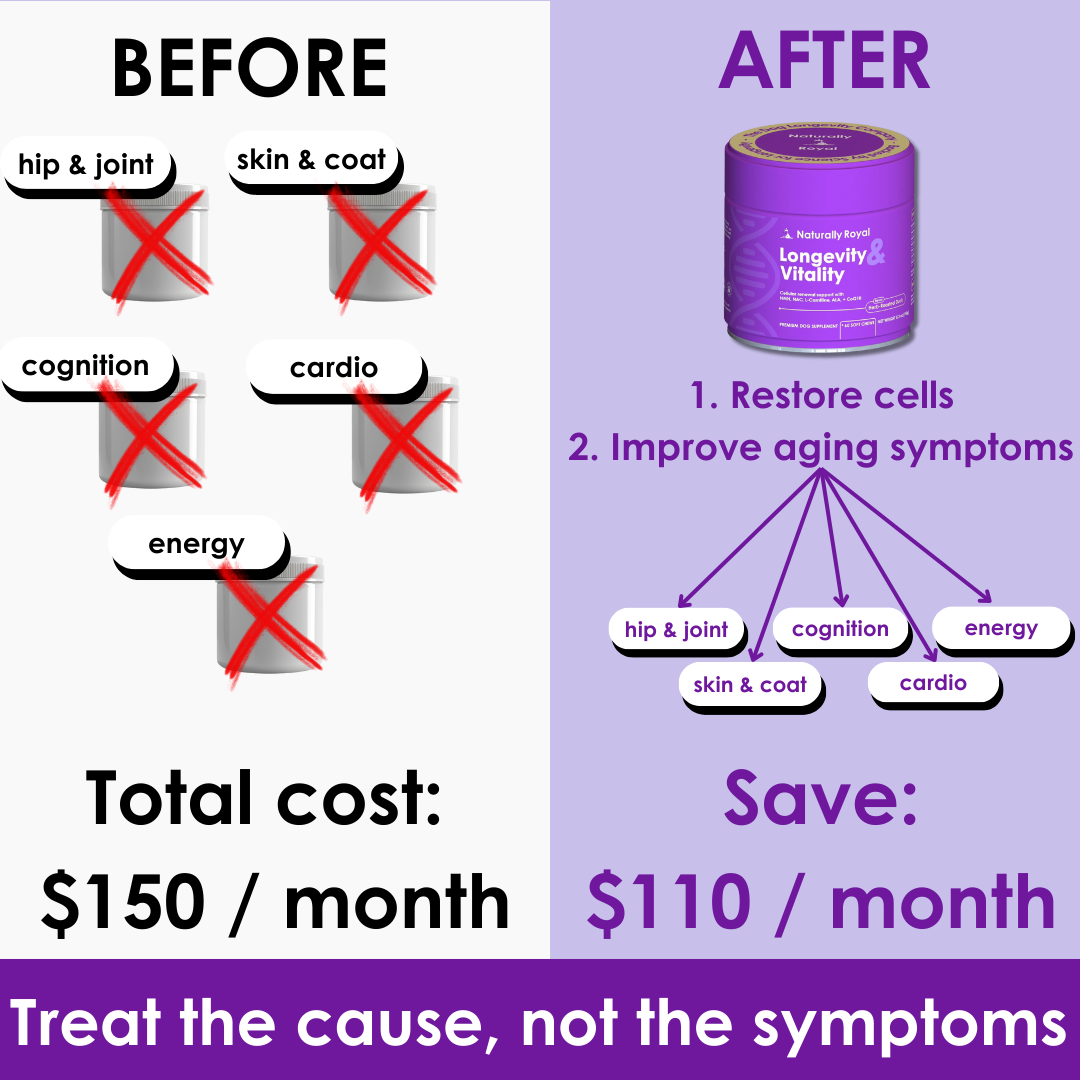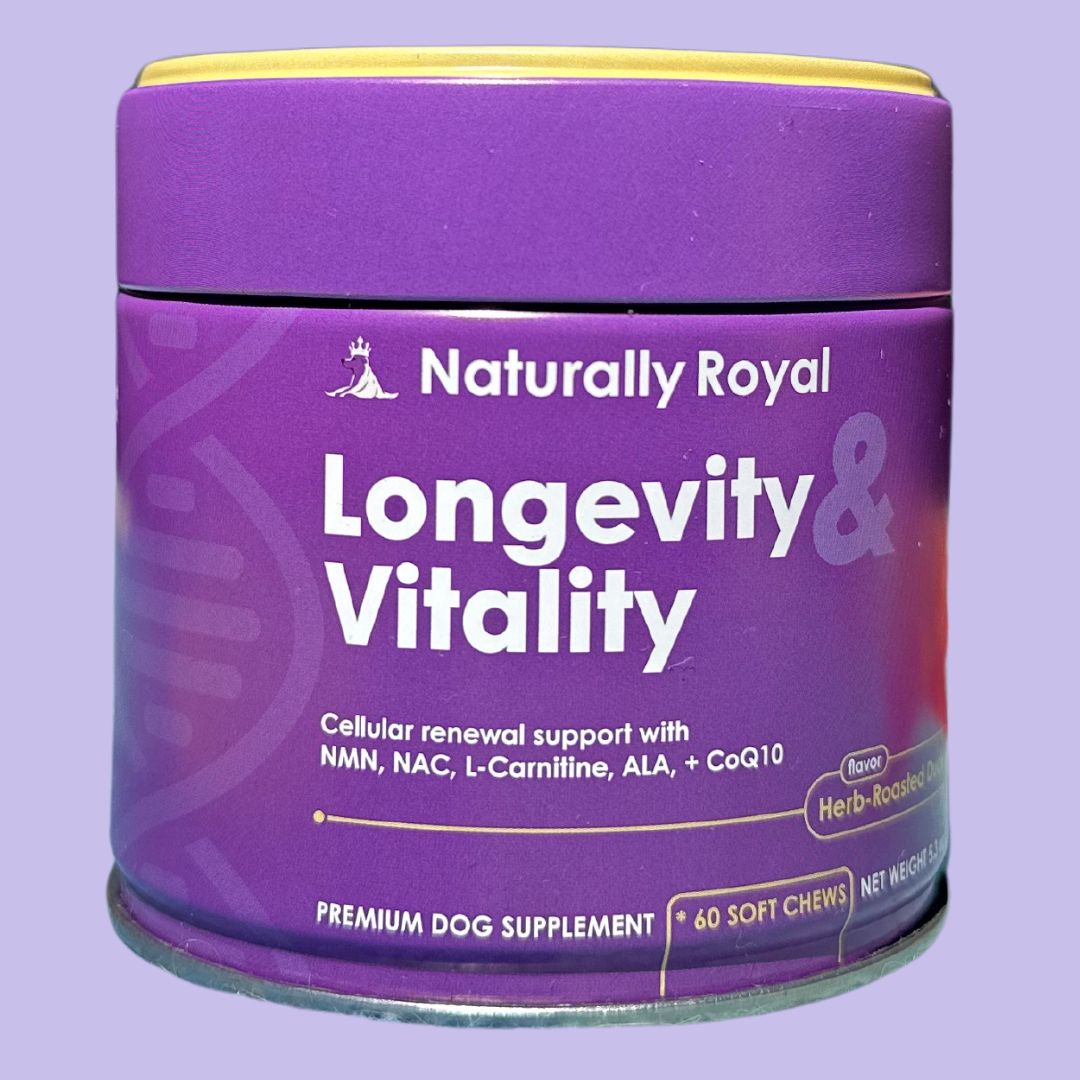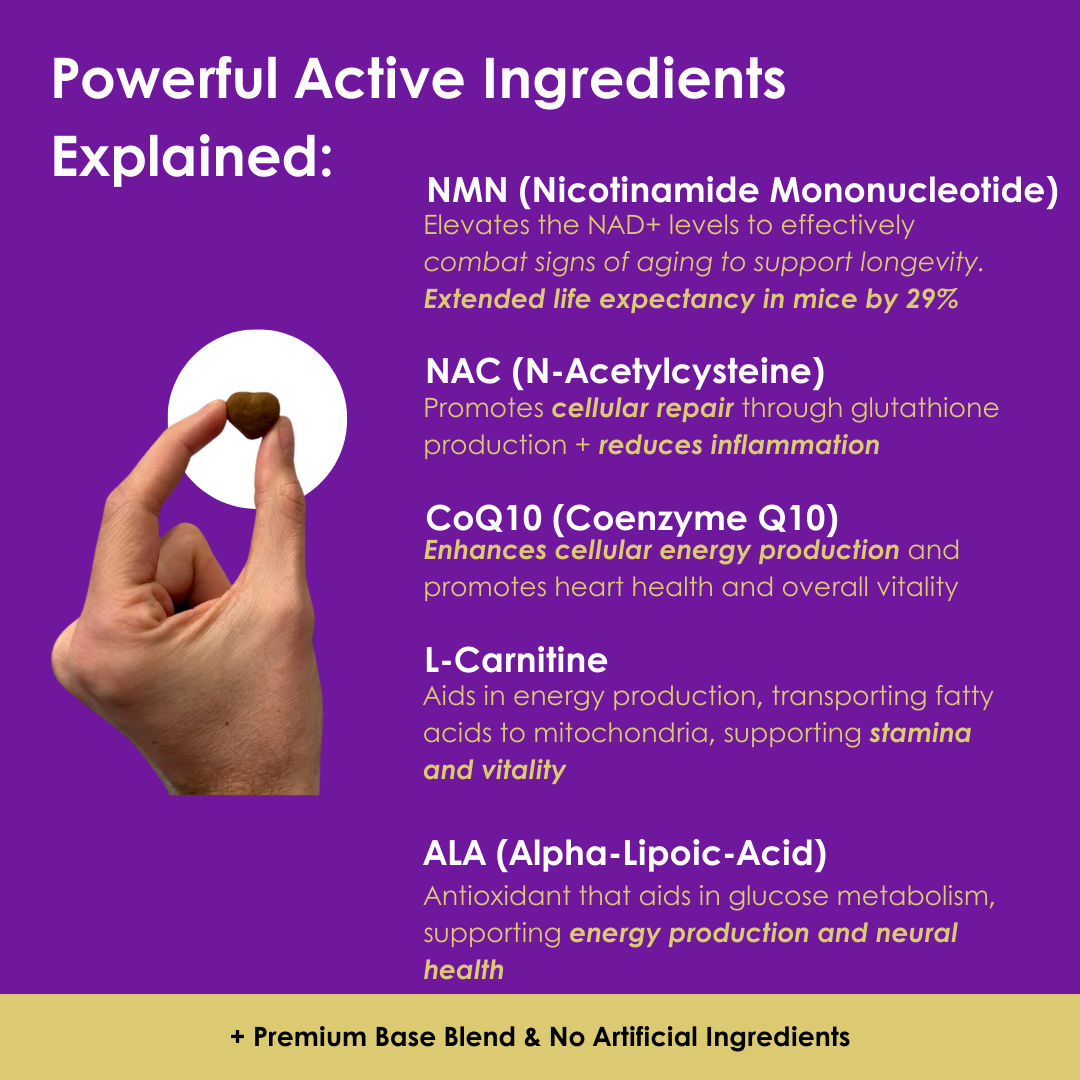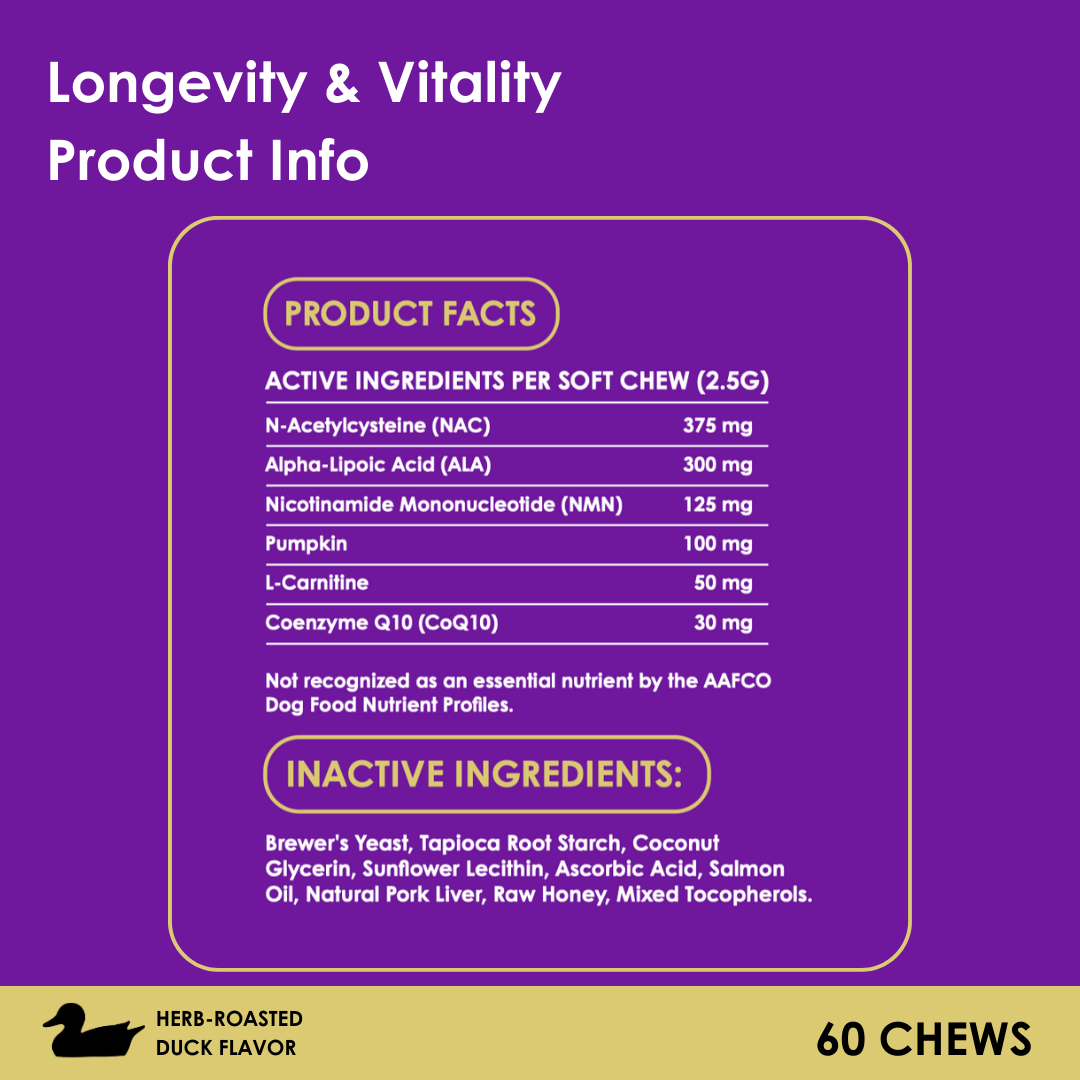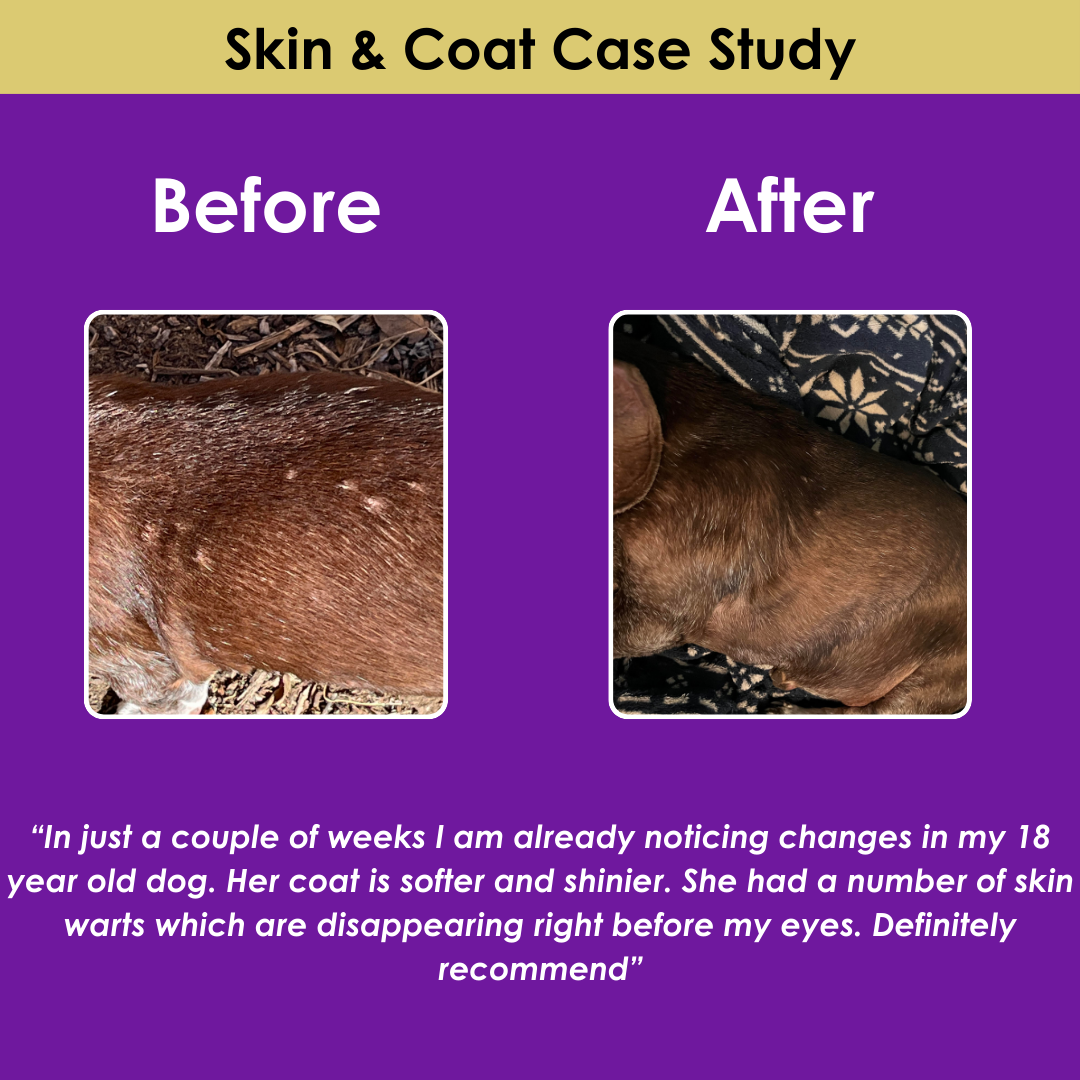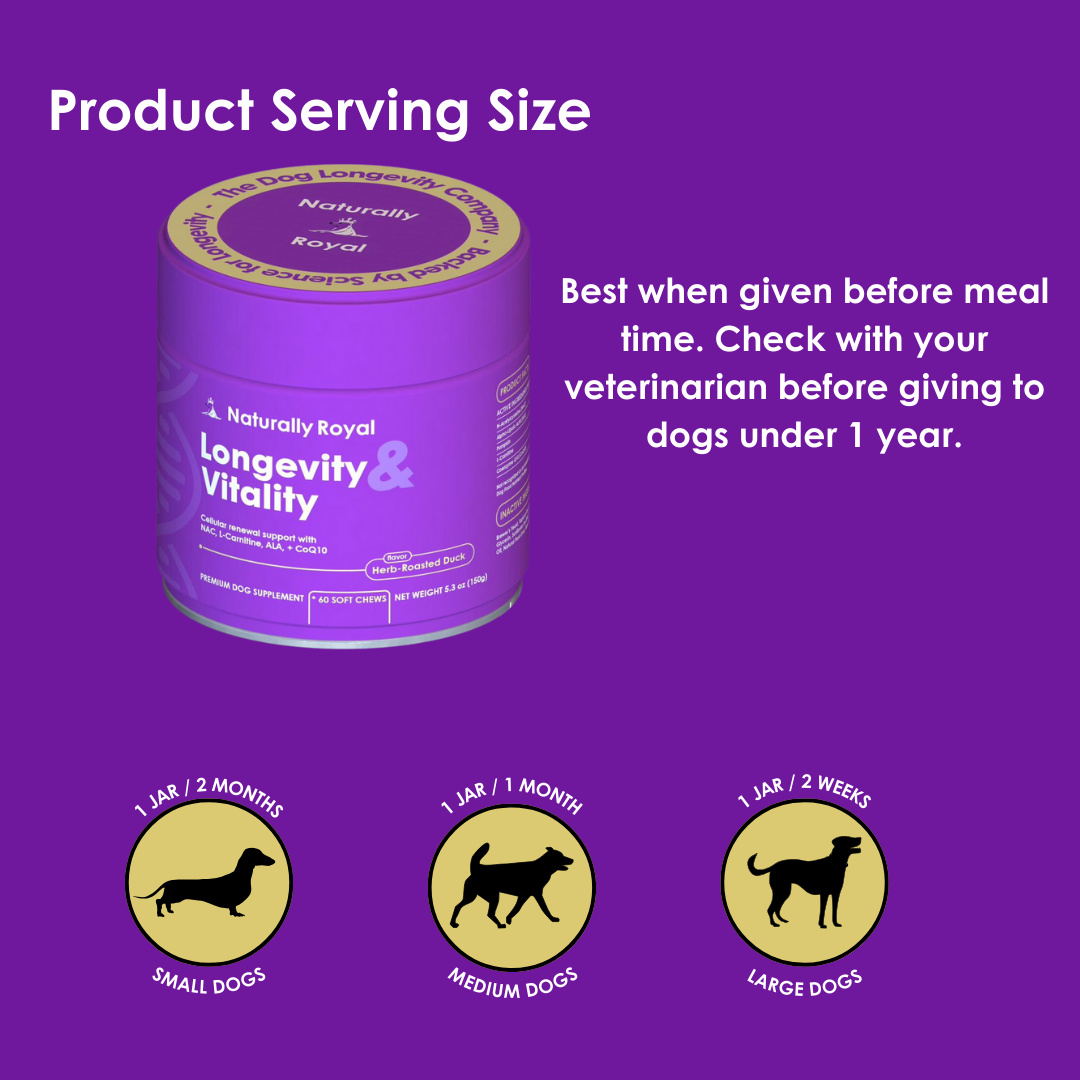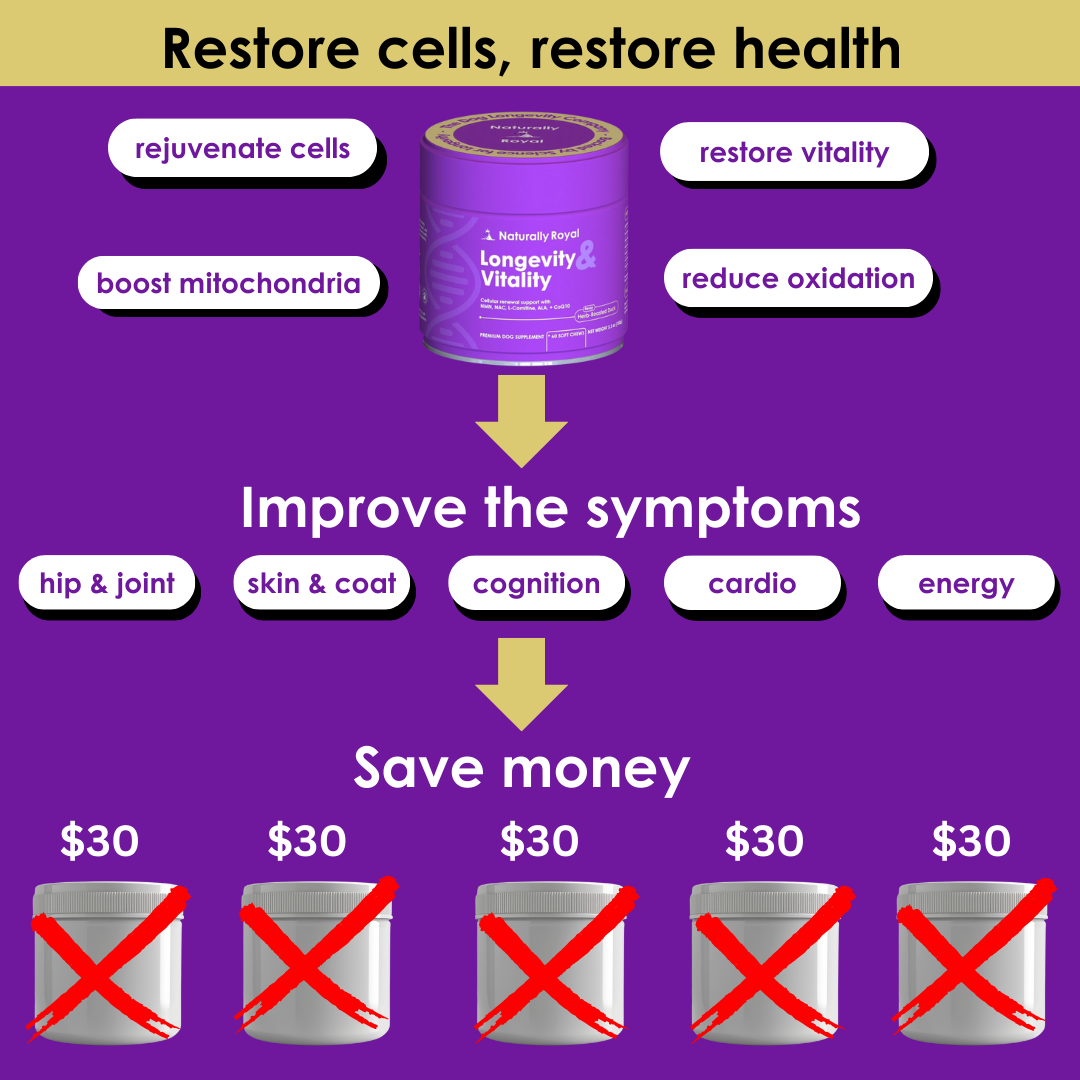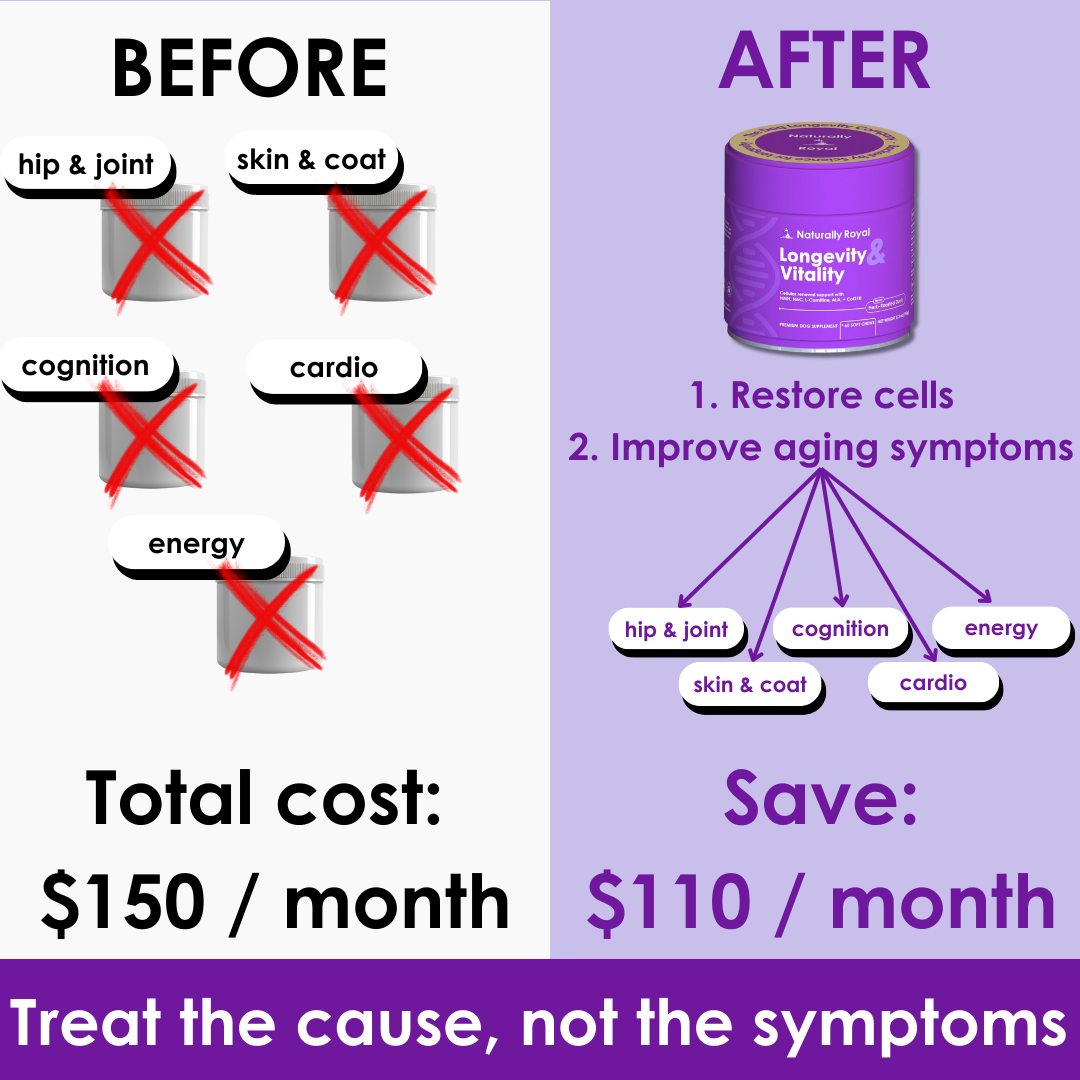Top 5 Longevity Considerations for Older Dogs
As our beloved dogs enter their golden years, their needs begin to change. Aging brings about physiological changes that require adjustments to care. Here are the top five longevity considerations for older dogs, accompanied by best practices to ensure they live their longest, happiest lives.
1. Nutritional Needs
Consideration: Older dogs have different nutritional requirements compared to their younger selves. They need diets that support their slowing metabolisms yet are rich in essential nutrients to maintain health.
Best Practices:
- Switch to Senior Dog Food: Opt for high-quality senior dog food that's lower in calories but rich in fiber and essential nutrients.
- Consider Supplements: Supplements such as omega-3 fatty acids for joint health, antioxidants for cognitive function, and probiotics for digestive health can be beneficial.
- Monitor Weight: Keep an eye on your dog's weight to prevent obesity, which can exacerbate health issues like arthritis and diabetes.
2. Regular Veterinary Care
Consideration: Aging dogs are more susceptible to diseases such as arthritis, dental issues, heart disease, and kidney problems.
Best Practices:
- Bi-annual Vet Visits: Increase the frequency of veterinary visits to at least twice a year for early detection and management of age-related diseases.
- Dental Care: Ensure regular dental check-ups and cleanings to prevent periodontal disease, which can affect overall health.
- Routine Bloodwork: Comprehensive bloodwork can catch the early onset of diseases such as kidney failure or diabetes.
3. Physical Activity
Consideration: While older dogs may not have the same energy levels as before, maintaining regular physical activity is crucial for their health and wellbeing.
Best Practices:
- Adjust Exercise Routines: Tailor exercise to your dog's ability, opting for gentle walks or swimming to ease joint pressure.
- Promote Mobility: Consider physical therapy or hydrotherapy for dogs with arthritis or mobility issues.
- Daily Play: Engage in light play to stimulate their mind and keep them physically active.
4. Mental Stimulation
Consideration: Cognitive decline is a concern in aging dogs, manifesting as disorientation, altered interactions, and changes in sleep patterns.
Best Practices:
- Mental Exercise: Use puzzle toys and interactive games to keep their mind sharp.
- Training: Continue training exercises to engage their brain, using positive reinforcement techniques.
- Routine: Maintain a consistent routine to provide security and stability, reducing stress and confusion.
5. Comfortable Living Environment
Consideration: Senior dogs may have difficulty navigating their environment due to vision loss, hearing decline, or mobility issues.
Best Practices:
- Accessibility: Make your home more senior-friendly with ramps for furniture or stairs, and keep essential items like food, water, and their bed within easy reach.
- Warmth and Comfort: Provide a warm, comfortable bed that supports their joints, and consider heated beds for those with arthritis.
- Safety Measures: Use nightlights to help dogs with poor vision and keep the floor clear of obstacles to prevent falls.
Caring for an older dog involves a comprehensive approach that addresses their physical, mental, and emotional needs. By implementing these best practices, you can help your senior dog enjoy a high quality of life during their twilight years. Remember, each dog is unique, so tailor these guidelines to fit your dog's specific health status and needs, consulting with your veterinarian to devise the best care plan.


